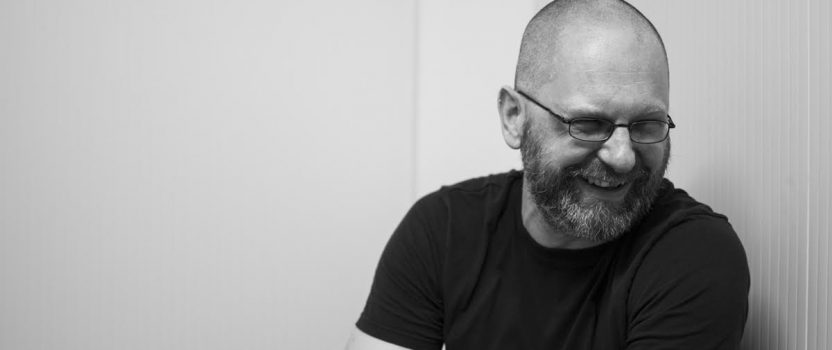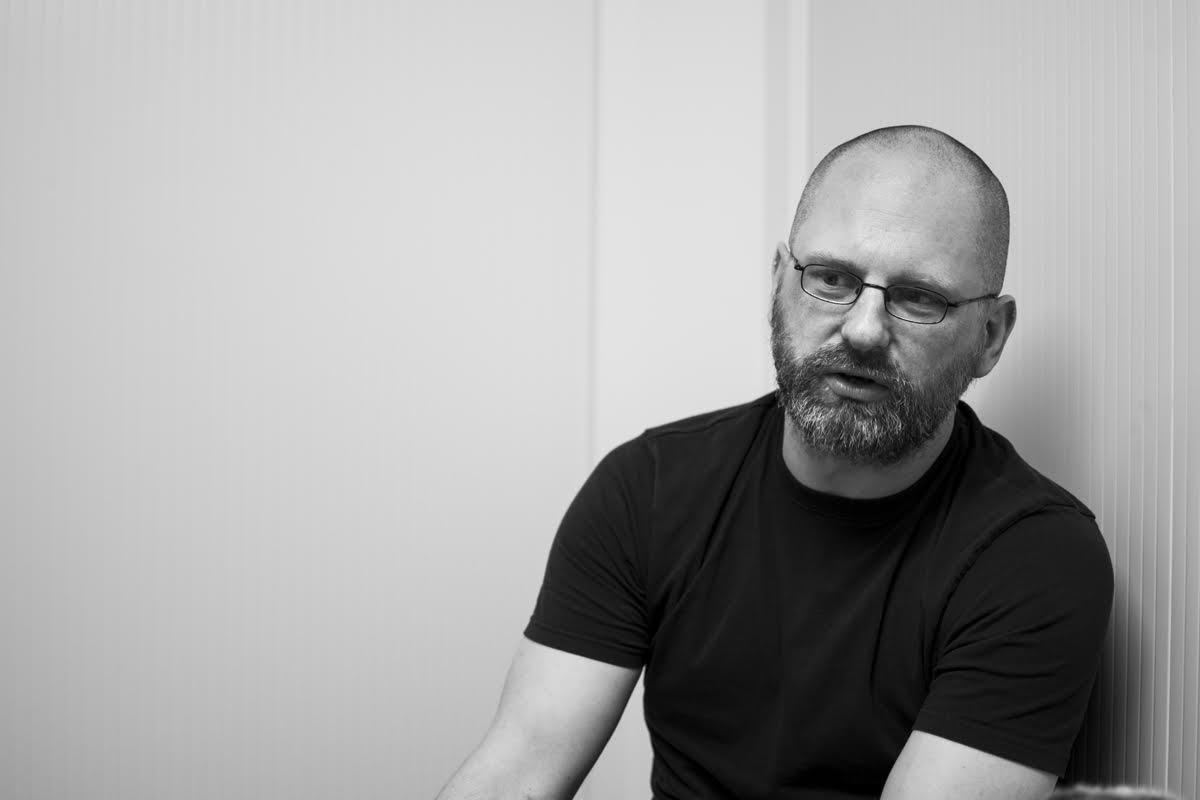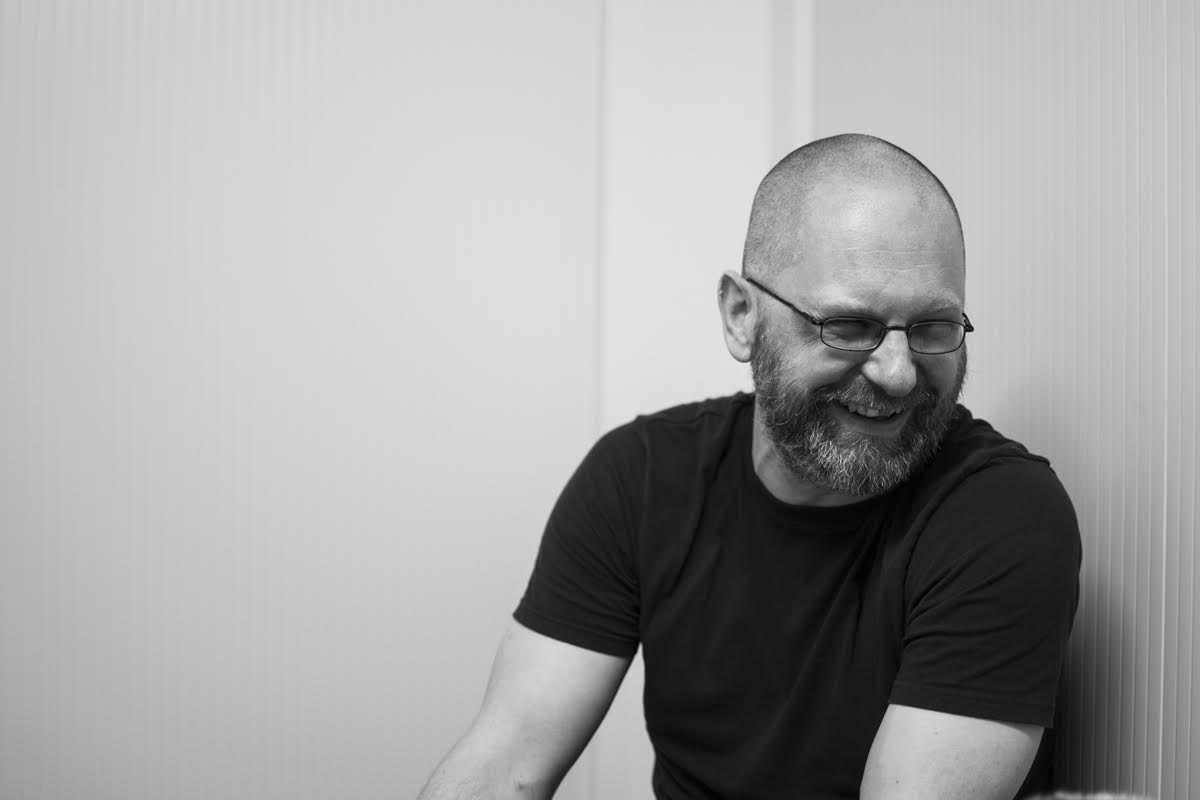Killing Music: A conversation with Dave Hunt
For years, England has been the melting pot of heavy music. From the early heavy metal giants such as Black Sabbath, Iron Maiden, Judas Priest and Saxon, to the more extreme metal acts like Napalm Death, Carcass, Cradle of Filth, Godflesh and Bolt Thrower, England is the heart and soul of an entire music genre. And at its very center is a little place called Birmingham, a metropolitan borough in the heart of the Midlands that bred a myriad of great bands that gave birth to, among other things, grindcore – a fast-paced and no-bullshit extreme metal subgenre that fuses the separate influences of extreme metal and hardcore punk. Included in this subgenre are the aforementioned Napalm Death and Carcass, but also others such as Extreme Noise Terror, Fukpig and Anaal Nathrakh, and it’s on the latter that this interview is focused. Well, not specifically the band but rather its vocalist, Dave Hunt.
Dave Hunt was born and raised in Birmingham and from an early age, he was interested in making noises and growling. Over the years, this interest evolved into a rather refined taste in heavy music and during his now 20+ year career he has been a part of a few projects, more notable the previously mentioned Anaal Nathrakh, as well as Benediction and Mistress. Last year, on Benediction’s visit to Portugal during which they performed at SWR Barroselas Metalfest – which also ended up being one of his final shows with the band -, we spoke with Dave Hunt about his first contacts with heavy music, how he came to be the vocalist of Benediction, his influences and the pressure of performing live, among other topics.
What was your first contact with heavy music and what was about it that made you want to invest in a musical career?
Since I was a tiny little kid, I was kind of interested in noises, making noises and stuff like that. When I was about five, I used to growl back at dogs, I was a weird kid. [laughs] But yeah, I always kinda knew I could do strange noises. But then, when I was about 13 or 14, I started to get a sense of wanting to hear something more, because at the time, I liked Michael Jackson, I liked MC Hammer or whatever was around on TV at the time. I started to develop a sense of identity on what I wanted to listen to specifically, but I didn’t know what it was called and I didn’t know the name of any bands that did it or anything like that. With my parents, my mum liked Chopin and my dad liked The Beatles, so I tried to find something I thought would be that sound that I had in my head and the first thing I thought to go to was Iron Maiden, because people said heavy metal was aggressive, that it had power and all that. So I got it and I liked it but it wasn’t right. And then, I did the same thing with Metallica and their Black Album, and I did the same thing again and got Decade of Aggression by Slayer, and that all started to feel right.
Eventually, I walked into a t-shirt shop in Birmingham and they were playing what I now think was Deicide and I was like, that’s the kind of thing I want. At the time, Earache Records did a tour called Gods of Grind and they put out an album and it was Carcass, Entombed, Cathedral and Confessor, and I just listened to that and then I just got the heaviest stuff that I could find. And I think I finally found almost what was in my head. If you could imagine a mixture between Disgorge, Whitehouse and Masonna all playing at once, that was the sound. That’s a very long answer but the idea is, I already had it, I just had to find what it was even though I knew what it was in a strange sense.
Were you a part of any band before you joined Benediction?
Yeah, I did a couple things with some friends, but nothing really serious. I think my first show with Benediction was probably my fifth gig ever in any band. Around the same time I joined Benediction, that was when we were starting Mistress, as well as Anaal Nathrakh just a few months after. It was all at once.
How was it joining Benediction?
I knew Neil (Hutton), the drummer at the time. Not well, but to say hello to occasionally, I would see him at gigs and whatever. And one of the four gigs I had done before Benediction, he had been there. When Dave (Ingram), the previous singer of Benediction left, he left quite soon before a tour. Benediction already had an European tour with Death lined up, which was like a three and a half week tour as main support to Death. The only ever band to get asked back to support Death, to do two tours with them and this was the second one, so it was a big deal. But then, Dave left and Benediction just went “Fuck! What do we do?”. I’m not sure when Dave left exactly but I got a phone call from Neil about two weeks before leaving and they were so desperate. They were like talking amongst themselves going “How do we get a singer?” and Neil says “I saw this guy a few weeks ago”. So I had approximately a week to learn all the words and all the songs. I mean, I knew some Benediction songs already, of course, but I didn’t know all of the words, it’s a lot to learn. When we first started the tour, the first few shows I had all the lyrics written out on big pieces of paper onstage, so that I could try and sing and I could try and breathe the next bit. [laughs] I mean, it’s not the most professional but it had to be that way, it was either that or cancel the tour and you can’t do that.
But the tour went great nonetheless?
Yeah, I mean, I was terrible to begin with. Maybe some people can just walk in front of a thousand people and they know what they’re doing but I didn’t and most people I don’t think would know. But yeah, I think by the end of the tour, you know, a few shows in, we were doing okay. The next tour was a few months after that, about six or seven months later, and I got a phone call which was “we are going back out on tour again, it seemed to go okay last time, do you want to do another one?” and so we went out again for about three weeks or so with Immortal and that went well. After that it was like, “well you’ve done two tours and went okay, you’re in the band now”. But yeah, it worked out twenty years later. [laughs]
You mentioned the pressure you had at the time when going onstage. Do you still feel that when playing shows?
For a while, I started not to be too worried. I’ve done this a lot of times, it’s all fine, you know, I’m confident. And then I got really sick on tour once, shit happens eventually. I tried to do a show in Austria with Benediction and I collapsed and had to go to the hospital. It was just as the show was starting, I felt terrible all day but you think, when the show starts, you get the adrenaline going… So, we start playing and I go out and I’m like “Yeah! Oh no…” and I remember tapping Darren on the shoulder and saying I can’t do this. And ever since then, I shit myself every show because that night made it possible to fuck up and before that, it didn’t seem possible. I mean, you could get things wrong but you couldn’t fail the show. But yeah, ever since then, I shit myself every show but I think that’s a good thing. If a show is like going into an office to start your day at work, I don’t think that’s how you should do a show, there should be more to it than that.
Was it hard for you to fit in with the band when you first came into the fold?
Yeah, I mean, you have to approach it with open arms to a certain extent. Doing something like this when you’ve never done it before, like anything, is going to push you into places you don’t know how to deal with. But, if you’re honest about the reasons why you’re doing it, which for me was wanting to do my best, wanting to enjoy and seize opportunities, if you stick to that in your head then I don’t think it’s going to be much of a problem. Some of this stuff is difficult, it’s very tiring, it’s physically demanding doing shows, especially night after night if you’re a singer. But at the same time, if you can do it, it’s doable, it’s not like you could… Say you’re a physicist and there you are onstage at a conference and you’re trying to prove these equations and stuff and someone asks you a question that you just don’t know the answer to, you’re fucked [laughs] I mean, I’m sure a physicist would say something, but in principle, with this if you can do it, it’s just a matter of coping with doing it. You can push your way through, you can lean on your friends if you need to. So yeah, it’s a bit weird and it’s a big step, but it’s something that is doable, I think.
“If a show is like going into an office to start your day at work, I
don’t think that’s how you should do a show,
there should be more to it than that.”
Did you have any creative input when recording with Benediction?
It varied a little bit, actually. The first one, I hadn’t been in the band that long, we hadn’t written together before so that was kind of, they recorded the music, they gave it to me and I just wrote stuff to go over it. Since then, it had been a little more… I mean, I don’t write songs because that’s just not what I’m good at but I do have an ear for little changes, moving syllables around, that bar should change to that, that sort of thing, and having a bit of a constructive conversation about how to perfect a song. But it depends on who you’re working with, you know? The Benediction guys are very open to that, they write their stuff but to thinker with it, they’re very open to that, whereas someone else you work with might not or it might just be pointless.
When we write Anaal Nathrakh stuff, I might suggest little things to Mick but he is just way better in that than I am. I don’t really tell him what to do with the music at all. We might chat together about it but for the most part, when we record, he has already recorded the music and I haven’t heard any of it. I just sing over what he gives me. And in the same way, he wouldn’t tell me anything about how I do it.
Speaking of Anaal Nathrakh, when you created the band with Mick Kenney, was there an initial goal you wanted to achieve with it?
We wanted to do something that was satisfying, basically. Because at the time, we were avidly listening to lots of music and none of the new music that was coming out was harsh enough. I mean, things come and go, there have been pretty harsh things since then and maybe there were things that were coming out that we didn’t hear off, but somehow it needed to be more abrasive. So we just thought, well, let’s do it, let’s make ourselves happy.
You could say it was like when you were discovering music and wanted that specific sound that was in your head, you just had to find a way to get there and with Anaal Nathrakh you had to do the same thing.
Yeah, it was kind of the same because I don’t think me or Mick have ever really struggled with what we think the band should sound like. We already knew that, we just had to do it.
You didn’t plan it, it was natural that you guys starting going in that direction.
Correct. We never payed attention to genres of music apart from what we listened to. So when we were working together and making music, we didn’t think, okay, we need to mix together some black metal stuff, some grindcore stuff… No, we just made music and it turned out like that. So, whatever people got, it was up to them. I don’t like to say I don’t care, because if people care enough to have a conversation about something you made… I don’t care is the wrong term but it’s not something we think about, it’s not important to us.
What would you say are your main influences when it comes to Anaal Nathrakh, if any?
None, really. I mean, when we started off, there were more obvious influences like Mayhem, which was a big influence to begin with and we even did a cover song on a demo, Napalm Death, a bit of Extreme Noise Terror. When we were doing early stuff, people sometimes compared us to Emperor and I was like, we never intended to sound anything like Emperor but apparently we did, I dunno. [laughs] And maybe some Arcturus as well, we were both quite keen on Arcturus and their clean singing. But pretty much when we started to feel like we got what we wanted, we stopped thinking about any influences.
What would you say are the main differences in composition between Anaal Nathrakh and Benediction?
Oh, totally different. Like I was saying, Benediction is more of a group effort. I mean, the foundation is between Daz (Darren Brookes) and Rewy (Peter Rew), they write the riffs together – basically Rewy writes riffs and Daz makes songs, that’s kind of how it works. But then, I’d all jam in together and if anyone has got an idea, it starts to become more of a collaboration. The vocals tend to be left up to the vocalist but there is a dialogue about how to fit them around the music, that kind of thing.
With Anaal Nathrakh, Mick writes the music then we do the recording sessions for the album and I haven’t heard any of it usually. I just sit down and we play parts of songs over and over until I go, ‘Right, I know what to do, press record’. So, very often the stuff that you hear has never happened before and Mick didn’t know what it was going to be and sometimes I didn’t know what it was going to be, it’s all quite spontaneous.
Is any of the stuff in Anaal Nathrakh improvised?
It’s not a total improvisation, I usually have lots of lyrics but not properly written out lyrics, I’ll just write phrases, lines and while I’m trying to figure out what to do, I’ll fit those around the music. So, it’s not improvisation, the better word is spontaneous.
Is that why you don’t release any lyrics in Anaal Nathrakh?
No, not at all, there are lyrics. We just decided early on we didn’t want to do that. But then, after it became an established thing, I started to think that if you just give people all the information, it’s easy for them to just pick it up, read it and go ‘Oh well’ and not think. I prefer, if possible, for people to think. Some people don’t care, they just want to hear the sound and that’s fine, I don’t have a problem with that. But if someone does care enough to wander what it is, there are clues all the way through, there’s the song titles, bits of lyrics that you can actually hear, things in liner notes, things I’ve said in interviews, there are always enough clues for you to get an idea of what is going on. But you have to go the extra step and think about it for yourself. Like I’m saying, I don’t want to be arrogant and try and force people to do anything but if they are going to get something out of it, they are going to get more out of it if they think for themselves.
How would you say the Birmingham scene now compares to back then?
When we started, I knew what was going on in the local scene and now I don’t! [laughs] We don’t participate that much in it, to be honest, which is a bit of a shame. When you’re out there doing local gigs all the time, especially like we did with Mistress, we were very much in the local scene and when you’re going out drinking in the same bars when not playing a show and see other shows, you’re automatically a part of it, you automatically get to know people from it. But nowadays, we have different habits and we don’t necessarily head down to the local rock bar every weekend like we used to, we don’t play many local shows. It’s a shame, really. We are a bit disconnected from it but we try to pick up on things every now and again. A few weeks ago we did a show in Birmingham, I had never heard of the opening band, Khost, and they were great, they sound kind of like Godflesh and it was really cool to check them out. But in terms of most of the up-and-coming, younger and hungry bands out there, I don’t know who they are. [laughs] I feel kinda guilty saying that but you’ve got to live the life that you’re doing and I have to spend so long studying and then go away and do stuff like this, I just don’t have the chance or time.
How do you think the projects you are and were involved in have influnced other bands in Birmingham?
I don’t know, actually. I mean, the guy we got helping us out this weekend, he plays drums in a band called Burden of the Noose and, I don’t know how directly, but I would say they probably had some idea of what we were doing with Mistress, so I’d say there is an infuence there. It kind of helps that they’ve got the bass player of Mistress playing with them. [laughs] Other than that, I’m not entirely sure. I remember we got kind of friendly with a local band a few years ago called Morgue Orgy. Unfortunately, they split up and they certainly knew a lot of Anaal Nathrakh stuff. Other than that, again, I wish I did know, but I’m not sure. It’s up to other people what they do, you know what I mean? I don’t expect that, back in the day, Mayhem payed much attention to what we were doing in any of our demos. I mean, they could have but it’s very unlikely. So, I wouldn’t know what people are doing now but if anyone is and it means enough for someone to be influenced, that’s quite a cool thing, I think. I just wish I could thank them for caring. [laughs]
Final question, how does it feel to be back at SWR after five years?
I like this festival, certainly. I mean, we haven’t been lucky enough to see much of Portugal unfortunately, so being back in Portugal, from my limited experience, has been lovely and that’s mostly because the countryside outside is beautiful, but that’s all I’ve had the chance to see. But this particular festival, i really quite like it. I think it’s cool because it’s got a weird lineup compared to some other festivals, but having the likes of Saint Vitus playing here and stuff like that, that’s kind of big. But there’s also this really underground side to it as well and the fact that there is a free stage at the front, I think that’s rather wonderful. It has a strange, sort of mixed feeling between that kind of thing and something a lot bigger at the same time. It’s kinda cool how it all blends together.
It seems like… I won’t get too heavy with the answer but a little bit of heaviness. Back home, in the UK, politics is fucked, we are really screwed. I know Portugal has had its moments as well, but yeah, things aren’t going well. And part of the reason seems to be that there is a disconnection between the people that are actually making the decisions and everybody else. And this festival is like the equivalent of what is needed in politics there. You start at the bottom, you feed into things that move on, but eventually you can make a bigger change. I know that is a weird analogy, but this feels like that kind of thing.
“(…) it’s got a weird lineup compared to some other festivals, but having the likes of Saint Vitus playing here and stuff like that, that’s kind of big. But there’s also this really underground side to it as well and the fact that there is a free stage at the front, I think that’s rather wonderful.”
Interview by Filipe Silva
Photos by Marta Rebelo






Leave a Reply
Your email is safe with us.